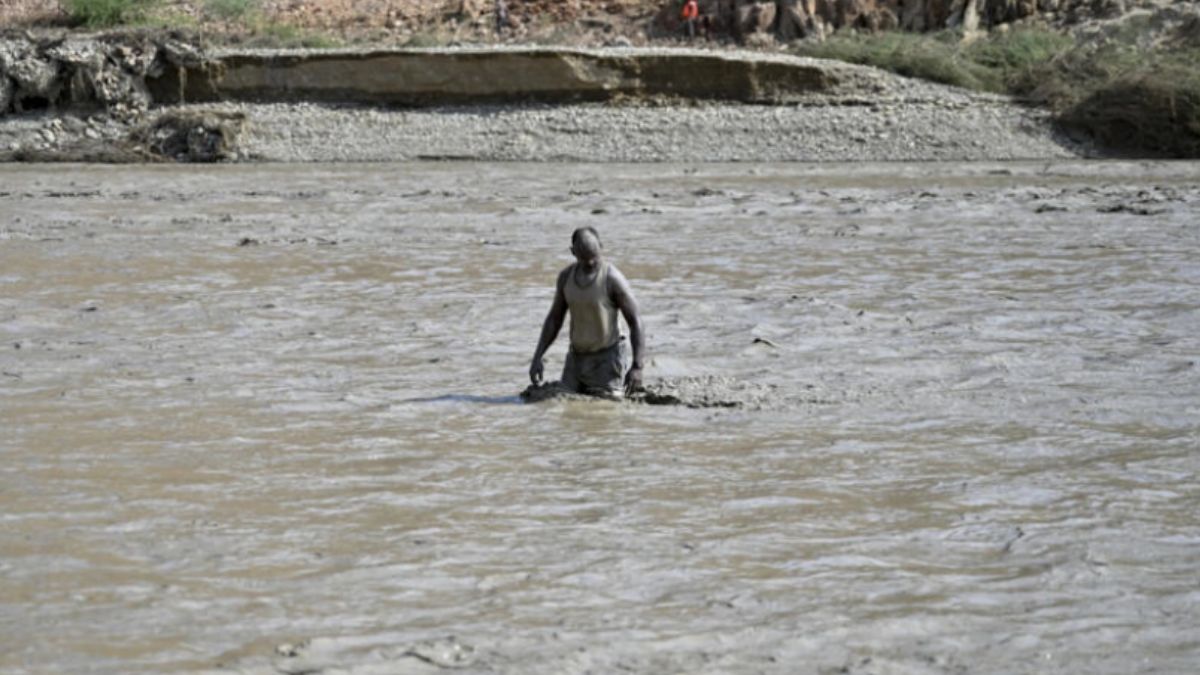Paetongtarn Shinawatra, 37, is the youngest daughter of Thailand’s most divisive but enduring politician, former premier Thaksin Shinawatra. She is now the youngest prime minister of her country and only the second woman to occupy the position, after her aunt Yingluck read more
)
Pheu Thai Party's leader and prime ministerial candidate Paetongtarn Shinawatra gestures on the day of a pivotal parliamentary vote on a new prime minister in Bangkok on August 16, 2024. Reuters
On the campaign trail in rural Thailand last year, Paetongtarn Shinawatra reminded voters of her influential billionaire family’s legacy of populism in what was her electoral debut.
The 37-year-old, who spent weeks at the hustings while visibly pregnant, delivered mixed results. Her Pheu Thai party came only in second in 2023’s election but cobbled together a ruling coalition after the vote-winner was blocked by military-backed lawmakers.
Now, the daughter of the country’s most divisive but enduring politician, former premier Thaksin Shinawatra, will take the office her father and aunt once occupied, underlining her family’s central place in Thai politics.
On Friday, some 48 hours after Prime Minister Srettha Thavisin was dismissed by a court order, Paetongtarn secured the parliamentary support required to replace him.
With that win, Paetongtarn will become the youngest Thai prime minister and only the second woman to occupy the position, after her aunt Yingluck.
She will also seek to beat another recurring theme for the Shinawatra family: The governments led by her father and aunt were toppled by the military in 2006 and 2014, respectively.
“The country has to move ahead,” Paetongtarn, the youngest of Thaksin’s three children, told reporters after winning Pheu Thai’s nomination on Thursday.
“We are determined, together and we will push the country forward.”
Thaksin himself returned to Thailand last August after 15 years in self-imposed exile, just as Pheu Thai - the latest political vehicle of the former telecom tycoon - forged an alliance with military-backed parties to form a government.
It was an unlikely coming together of the populist Pheu Thai and the conservative-royalist establishment that have battled for supremacy in the country of 66 million people for over two decades, sometimes leading to coups and bouts of civil unrest.
Srettha was the fourth premier of a Thaksin-backed political party to be removed by a court ruling, a sign of the deep divide that still persists.
Into this breech will step in an untested Paetongtarn, who has never held an elected government position and has no administrative experience.
“She will be under scrutiny. She will be under a lot of pressure,” said Thitinan Pongsudhirak, a political scientist at Chulalongkorn University.
“She will have to rely on her father.”
Father’s long shadow
Paetongtarn spent her childhood steeped in the country’s tumultuous politics as an ambitious Thaksin charted a meteoritic rise to wealth and then launched the Thai Rak Thai Party in 1998.
“When I was eight-years-old, my father entered politics. Since that day, my life has also been intertwined with politics,” she said at a speech in March.
Thaksin found his way to the premiership by 2001, and expanded spending on healthcare, rural development and farming subsidies - dubbed “Thaksinomics” for the poor.
He was ejected by a military coup in 2006.
Attending Bangkok’s elite Chulalongkorn University after his unceremonious exit, Paetongtarn - also known by her nickname Ung Ing - described that period as one of her toughest, when she was also accused of cheating.
“At times, I would see pictures of my father pinned to the wall, crossed out and drawn on,” she said in her March speech.
“At the age of 20, being surrounded by hate was very difficult to overcome.”
In less than two decades from that point, Paetongtarn, who is married and has two children, found herself as the face of her family-backed Pheu Thai party last year and one of its three prime ministerial candidates.
Last October, after the Pheu Thai navigated a circuitous route to forming the government, she was anointed the party’s leader.
“Pheu Thai will continue with its important mission in improving people’s livelihood,” she declared before hundreds of party members.
Paetongtarn’s relative inexperience has occasionally shown through.
In May, amid bickering between Srettha’s administration and the Bank of Thailand over interest rates, she said the central bank’s independence was an “obstacle” in resolving economic problems, drawing criticism.
At the corner office of Bangkok’s Venetian Gothic Government House, Paetongtarn will now likely have the guiding hand of her father to support her - as he always has.
“I consult with my father on all issues, whether on private matters or about work, since I was young,” Paetongtarn told Reuters last year.
“He has done this before. He was a prime minister.”

 2 months ago
36
2 months ago
36
)
)
)
)
)
)
)
)
)
)
)
)
)
)
)
)
)
)
)
)
)
)
)
)
)
 English (US) ·
English (US) ·